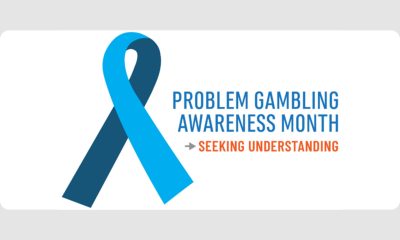Compliance Updates
NCPG Releases 2022 Report Comparing State iGaming Regulations to Internet Responsible Gambling Standards

The National Council on Problem Gambling (NCPG) released its 2022 report assessing the consumer protection regulations from states with legalized iGaming against its Internet Responsible Gambling Standards (IRGS). The report, titled U.S. Online Responsible Gaming Regulations: An Evaluation Against National Council on Problem Gambling Standards finds that regulations in four of the seven states where iGaming is legal fall drastically short of NCPG’s minimum responsible gambling standards.
iGaming regulations in Delaware, Michigan, Nevada, and West Virginia do not mandate operators provide players with sufficient responsible gambling protections. Regulations from Connecticut, New Jersey, and Pennsylvania met a majority of the standards outlined in the IRGS, but still fall short of meeting the full list. IRGS sets the standard for consumers to ensure whichever operator they choose; they can be confident that the platform has the responsible gambling tools necessary to assist in playing safely.
The National Council on Problem Gambling initially developed the Internet Responsible Gambling Standards in 2012 to help guide discussions among all stakeholders on internet gambling, including operators, regulators, advocates, and the public. The IRGS have received regular updates to reflect the current state of online betting, and recent trends in consumer protection and technology. The standards contain specific recommendations in the areas of policy, staff training, informed decision-making, assisting players, self-exclusion, advertising and promotion, game and site features, and working with research.
The most ethical and cost-effective response to gambling addiction issues raised by internet gambling is a comprehensive public health strategy that includes prevention, education, treatment, and research services. Responsible gambling standards are an important aspect of this approach. NCPG recommends every state with iGaming or those looking to legalize iGaming adopt the IRGS standards to best protect consumers from the negative consequences of gambling.
Compliance Updates
Peru Reports 40% Drop in Illegal Online Gambling

Peru’s Ministry of Foreign Trade and Tourism (Mincetur) reported that, a little more than a year after having implemented the law that regulates the online sector, it has been able to reduce by 40% the offer of illegal games in digital platforms and applications.
In a public statement, the Executive portfolio in charge of regulating gambling also highlighted that, thanks to the inspection work, 15% of the illegal websites “have left the Peruvian market” and that “payment methods providers and financial entities have been contacted to block services to unauthorized operators”.
Based on this, Mincetur highlighted that “Peru has managed to position itself as a regional referent in the integral regulation of gambling” and that, through the normative framework, it was possible to “protect the consumer, guarantee transparency in the operations and promote the formal and sustainable economic development”.
The Ministry highlighted that with the implementation of Law No 31557, which regulates sports betting and online games, “the country became the third country in Latin America to establish clear regulations for this activity”.
“Since its entry into force in February 2024, 60 technological platforms have been authorized and 280 linked service providers have been registered, as well as the accreditation of nine international certification laboratories,” Mincetur said.
In this regard, the Ministry stated that “this regulation has made it possible to formalize the digital sector, promoting an environment of trust for both operators and users.” At the same time, it has allowed “new investment opportunities, boosting the digitalization of entertainment and strengthening the country’s tax collection”.
Compliance Updates
Colombia’s Coljuegos Intensifies its Efforts to Block Illegal Gambling Websites

Coljuegos, the regulatory authority overseeing gambling sites in Colombia, has intensified its efforts to block illegal gambling websites. Coljuegos will now directly send requests to Internet Service Providers to block websites that operate online games without paying the respective royalties.
Coljuegos President Marco Emilio Hincapié said this strategy will be implemented based on Circular 017 of 2025, issued by the Ministry of ICT, which defined the guidelines and procedures for blocking websites dedicated to the exploitation, sale, payment, or advertising of unauthorized games of chance.
“From the Government of Change, we are working together to protect the gambling industry. After several roundtable discussions with the Ministry of Information and Communications (MINTIC), we were able to simplify the process of blocking illegal gambling websites,” Hincapié said.
The president of the entity highlighted that, to date, nearly 26,600 blocking orders have been issued to unauthorized betting sites.
“With this new procedure, we hope to block illegal platforms more quickly. We will no longer have to submit requests to different entities; instead, we will be able to order blocks directly from internet providers,” Hincapié said.
This Ministry of Information and Communications (MINTIC) measure is issued in compliance with Decree 0175 of 2025, which adopted tax measures due to the state of internal unrest declared by the National Government.
“In addition to fighting illegal operators, our goal is to protect resources for peace and health, as well as provide greater safeguards for the 14 authorized operators in the country,” Hincapié added.
Compliance Updates
IC360 Announces Integrity Partnership with PGA of America

Integrity Compliance 360 (IC360), the unequivocal global leader in delivering best-in-class integrity and compliance regulatory technology products and services for the sports betting and gaming sector, has announced a new partnership with the PGA of America.
Through this partnership, IC360 will provide the PGA of America with its state-of-the-art Integrity Monitoring technology, providing real-time alerts on global wagering activity. Additionally, the PGA of America will utilize ProhiBet, the one-of-a-kind prohibited bettor solution to prevent individuals from engaging in prohibited wagering activities.
“We are excited to partner with IC360, a leader in regulatory technology for sports betting and gaming. This collaboration underscores our commitment to maintaining the highest integrity standards within golf by integrating IC360’s cutting-edge Integrity Monitoring technology and the innovative ProhiBet solution. By leveraging IC360’s expert Advisory Team, we gain invaluable insights as we navigate the sports wagering landscape,” said Jeff Price, Chief Commercial and Philanthropy Officer for the PGA of America.
The PGA of America will also utilize IC360’s seasoned Advisory Team, who will provide consultative services to the organization as they navigate the nuances of the complex and evolving sports wagering regulatory environment. IC360’s team comprises former regulators and seasoned gaming industry professionals who ensure all regulatory compliance standards are hitting the highest standards.
“The PGA of America is a partner that shares the same vision of integrity and fairness in competition, which we promote and aim to protect. It is a privilege to provide this organization with our world-class technology and service, as they continue to showcase excellence in their commitment to integrity and their culture,” said Scott Sadin, Co-CEO of IC360, said.
-
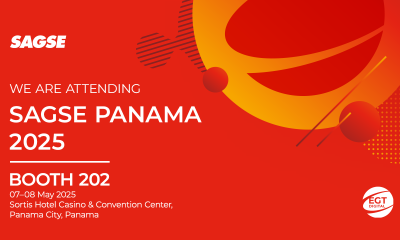
 Latest News4 days ago
Latest News4 days agoEGT Digital to make a debut at SAGSE Panama 2025
-
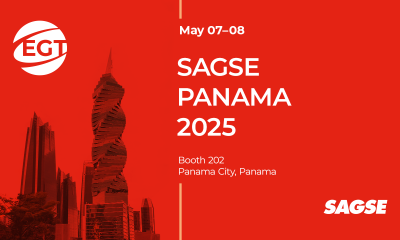
 Latest News4 days ago
Latest News4 days agoEGT’s innovative gaming solutions to be on display at SAGSE Panama 2025
-

 Latest News4 days ago
Latest News4 days agoLuckBet Launches New TV Commercial Starring Caio Castro on Sportv and Globoplay
-

 Latest News3 days ago
Latest News3 days agoCT Gaming Strengthens Its Presence with New Installations in Venezuela
-
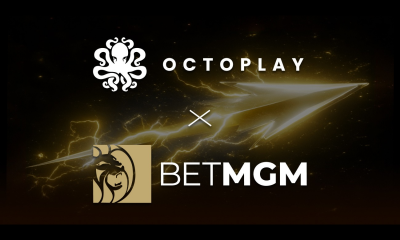
 Latest News3 days ago
Latest News3 days agoOctoplay Launches Jackpot Blitz with BetMGM in Ontario, Accelerating North American Expansion
-

 Latest News3 days ago
Latest News3 days agoClub Atlético River Plate and Betano Announce Long-Term Principal Partnership
-

 Latest News3 days ago
Latest News3 days agoIGT and Red Earth Casino Sign Multi-Year Casino Management Systems Agreement
-
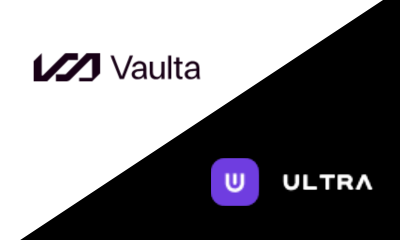
 Latest News3 days ago
Latest News3 days agoVaulta and Ultra Embark on Strategic Partnership to Power the Future of Gaming and Finance






